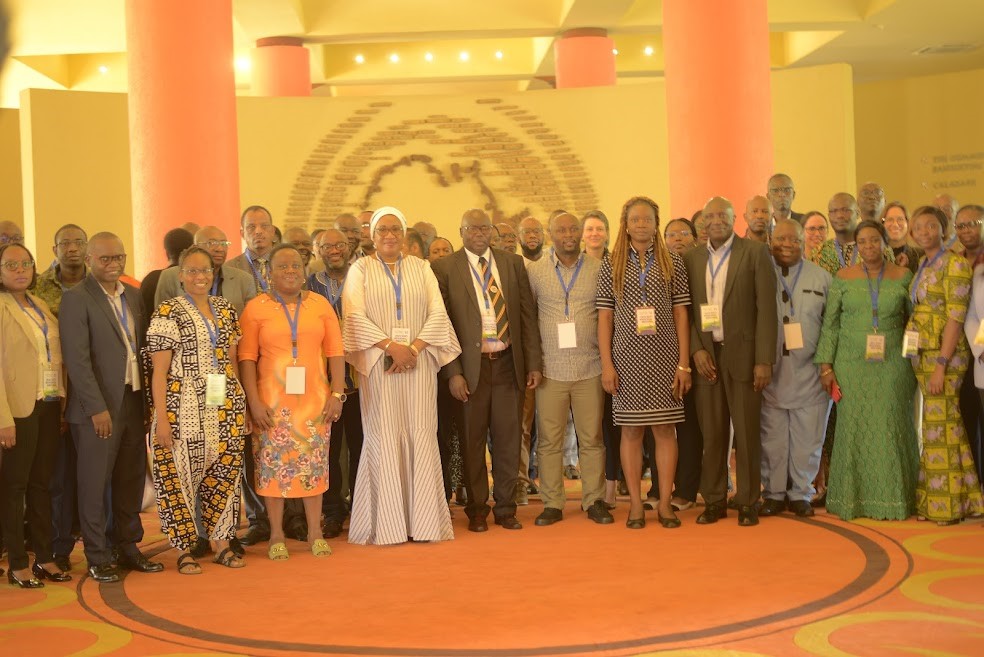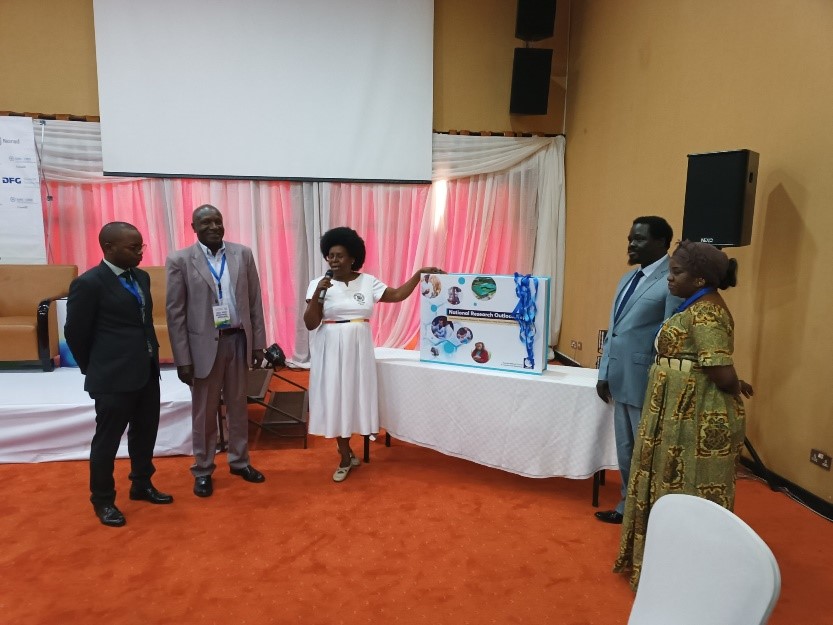SGCI News
The Uganda National Council for Science and Technology (UNCST) hosted the 2023 Science Granting Councils Initiative in sub-Saharan Africa (SGCI) Regional Meeting during 19-23 June at Munyonyo, Uganda under the…

The Uganda National Council for Science and Technology (UNCST) hosted the 2023 Science Granting Councils Initiative in sub-Saharan Africa (SGCI) Regional Meeting during 19-23 June at Munyonyo, Uganda under the theme “The role of Science Granting Councils in Africa’s development”.
The meeting provided an opportunity for sharing of achievements, lessons and good practices among the science granting councils from 17 African countries, SGCI funders including the National Research Foundation of South Africa, the International Development Research Centre (IDRC), Norwegian Agency for Development Cooperation (Norad) and the Foreign, Commonwealth & Development Office (FCDO), and Collaborating Technical Agencies partnering with the SGCI to implement capacity strengthening activities. In addition, the meeting also brought together science system actors from Uganda and the East African region.
In her opening remarks, Dr Dorothy Ngila of the NRF highlighted the powerful impact of the SGCI in multilateral partnerships and reach beyond the activities of the SGCI and encouraged Councils to find innovative ways of better demonstrating and leveraging the different partnerships that the SGCI has made possible. “There are many bilateral and multilateral partnerships that are being conceptualised as the SGCI continues to become visible beyond the continent and this meeting will assist us in how to better leverage these opportunities and how to make them available for our research performing institutions.” In aligning with the theme of the meeting, the UNCST launched the Uganda National Research Outlook Report 2023, which was titled “Unlocking Uganda’s Research Potential for Long-Term Development and Prosperity” during this week. The report was launched by Uganda’s Minister of Science and Technology, Dr Monica Musenero who emphasised the need for Councils to improve and integrate their processes and systems in order to support research that translates into development for the benefit of societies.
The meeting provided an opportunity for SGCI Collaborating Technical Agencies to explore synergies and prospects of collaboration across all the SGCI’s thematic areas.

Working together with the Councils they were able to co-design tailored capacity strengthening plans on research and innovation management; strategic communications, uptake of knowledge outputs; and developing frameworks for public-private partnerships based on the councils’ individual needs. In addition, there was an opportunity for councils to discuss governance, to shape the Africa-Japan Long Term Framework to support the multilateral research partnership that involves Africa and Japan, and that has been incubated by the SGCI.
Read more on https://insideeducation.co.za/uganda-targets-tvets-to-deliver-digital-skills-uj-prof-calls-for-monitoring/ and https://www.newvision.co.ug/category/news/uganda-africa-urged-to-set-own-research-agend-163091.
Related News
Voices of SGCI: Council leaders on the direction and ambition of SGCI 3
At the African Union’s Science, Technology and Innovation Week in Addis Ababa, earlier this month, leaders of science granting councils reflected on what SGCI Phase 3 represents for Africa’s science and innovation systems. From ownership and alignment to stewardship and sustainability, here are their voices…
Building Africa’s science future: inside the SGCI alliance
As Phase 3 of the Science Granting Councils Initiative launches on the margins of the African Union Summit in Addis Ababa last week, the SGCI Alliance Chair explains why this moment marks a decisive turning point for African science. Cephas Adjei Mensah describes what is…
Open call: Support for science granting councils in Sub-Saharan Africa
The International Development Research Centre (IDRC), through the Science Granting Councils Initiative (SGCI), has launched a call for proposals to support science granting councils in Sub-Saharan Africa in the establishment and operationalisation of the Capacity Strengthening Hub under Phase III of the SGCI-3. The Hub…
SGCI funded projects
Rwanda’s integrated approach to sustainable agriculture and nutrition
Project Titles & Institution Areas of Research Number of Projects being funded Project Duration Grant Amount In-Kind Distribution Council Collaboration with other councils





